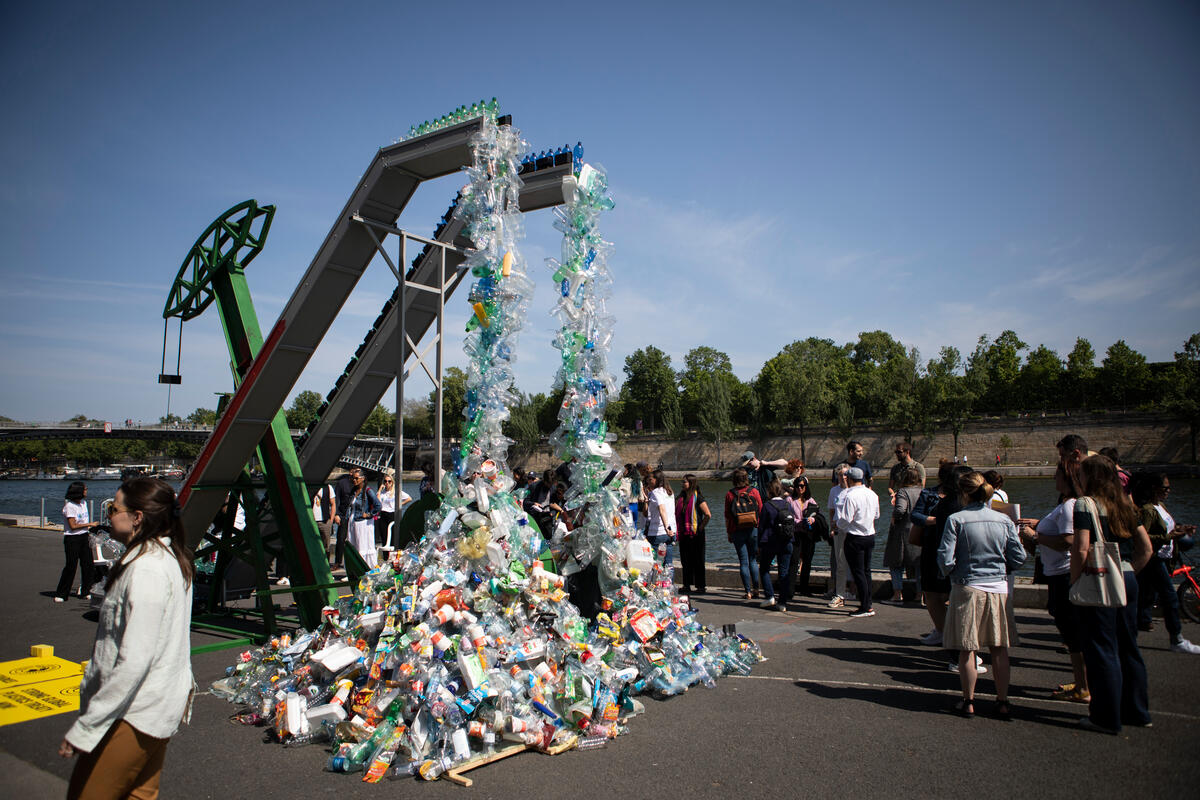In the latest policy address, Chief Executive Carrie Lam stated the Lantau Tomorrow Vision project “should not be subject to further delay”. Legco’s finance committee has already passed an HKD550 million study for this controversial project. It may seem like the beginning of the end, but many remain determined in defending Lantau. We have initiated its “Save our Lantau” flag campaign with more than 400 businesses joining. We spoke to 10 small businesses – all with different backgrounds – to understand their insistence in safeguarding Lantau. In urging a halt on Lantau Tomorrow Vision, these underdogs remain unfazed and hold their “Save our Lantau” banner high.
A looming ecological disaster
The first phase of Lantau Tomorrow Vision involves a 1,000-hectare sea reclamation, spanning ten years and will cause unimaginable environmental consequences. Mrs Chi moved to Lantau’s Shui Hau village 20 years ago after getting married and runs the Shui Hau Inn Store in the holidays. She and her husband, who was a Lantau native, have always been sceptical of the project’s environmental cost. “We won’t know how bad the pollution will be, and it will be irreversible no matter how much you spend. It’s like dropping ink into a glass of water, just one drop, and the whole glass is spoilt,” she said.
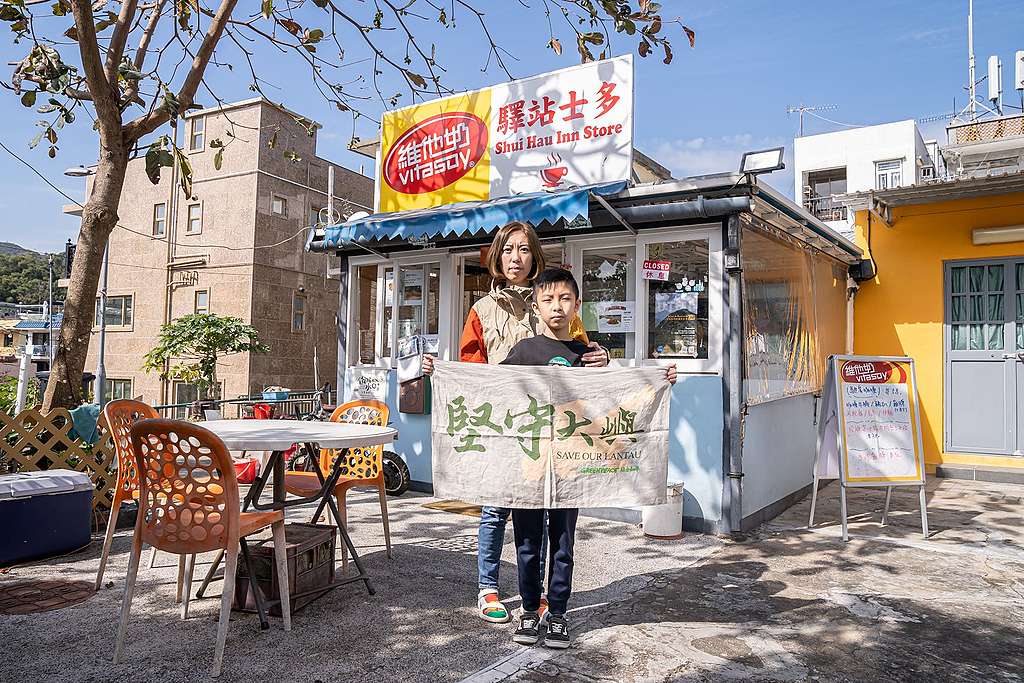
The environmental concern is also felt by Gary Brightman, a hipster running the Vibe bookstore in Mui Wo. He sees Lantau, where he has lived for the past 11 years, as his final resting place, because of its unique ecological value. “Lantau is the lung of Hong Kong and is full of undiscovered natural wonders”, he said. He is also worried that the dust and other pollutants would detriment the environment and living standard over a long duration if the project goes ahead.
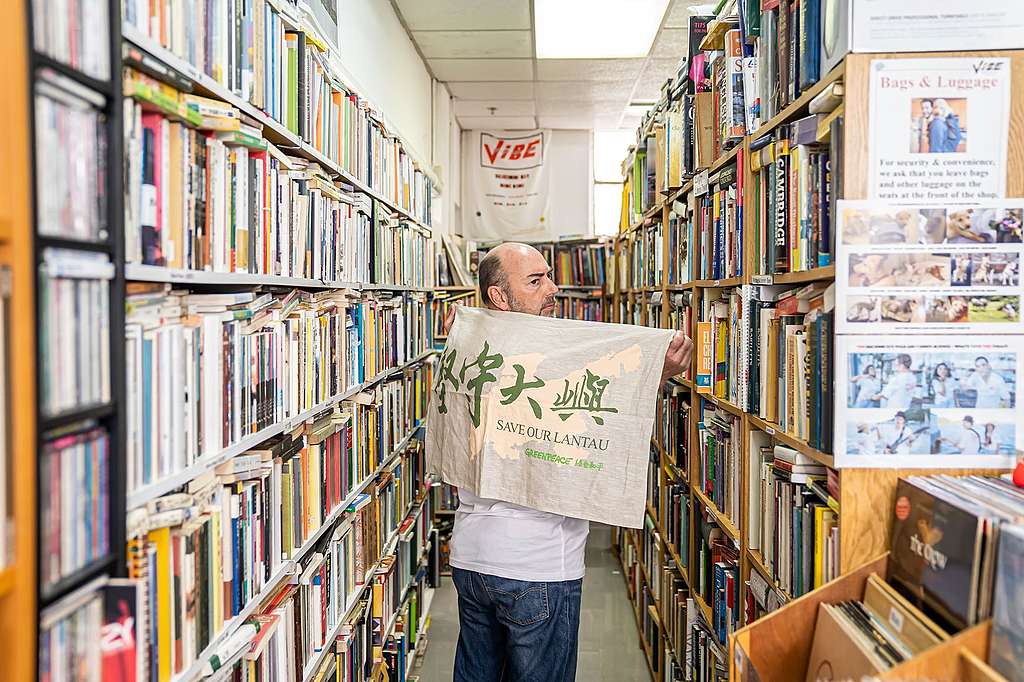
Residents aside, marine life will take the brunt first than anyone else. While humans may voice out, how could nature defend itself? “Natural resources like oceans are already shrinking. How could animals survive?” asked Po. In her fifties, this animal-lover returned to Hong Kong from the Netherlands recently to run her noodle shop – Dor Dor Cart Noodles. She thinks the reclamation project will further strip marine creatures of their living rights, “think in their shoes: if we are those animals, how are we supposed to cope?”
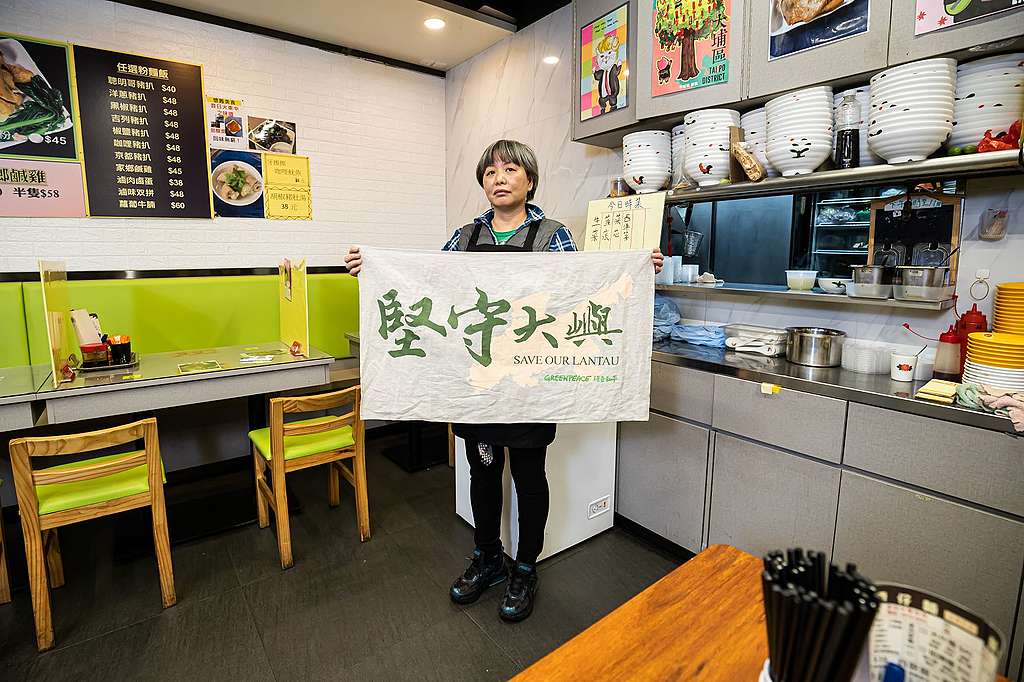
Future generations – not just nature – are at stake. Nicole, who owns a naked buy shop called Seed, wonders whether future generations would have any ecological resources left if the project goes ahead. “First, the developers targeted the country parks. Now they’re going for our seas. I don’t want our children to live in a place without oceans and country parks. You can’t build a roadside park and call it a country park, can you?”
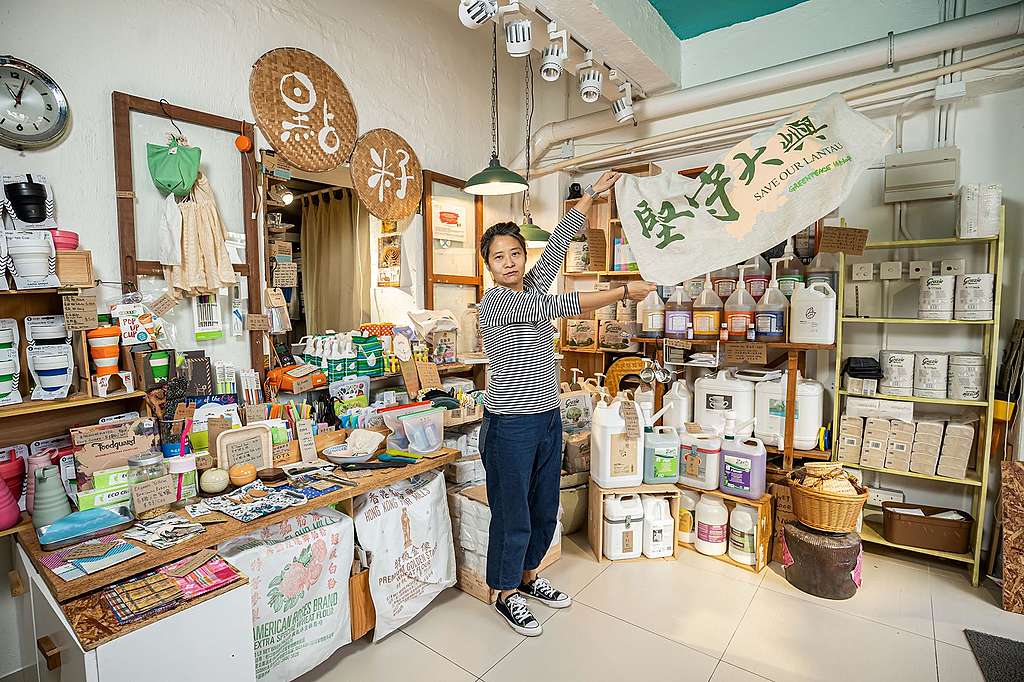
To Lung, owner of the Purple Dragon Snack stall, developing Lantau may fundamentally alter Hong Kong’s natural environment. “It might end our last piece of untouched land and tranquillity. There is not much ocean left, and is Hong Kong still Hong Kong without natural scenery?” he asked.
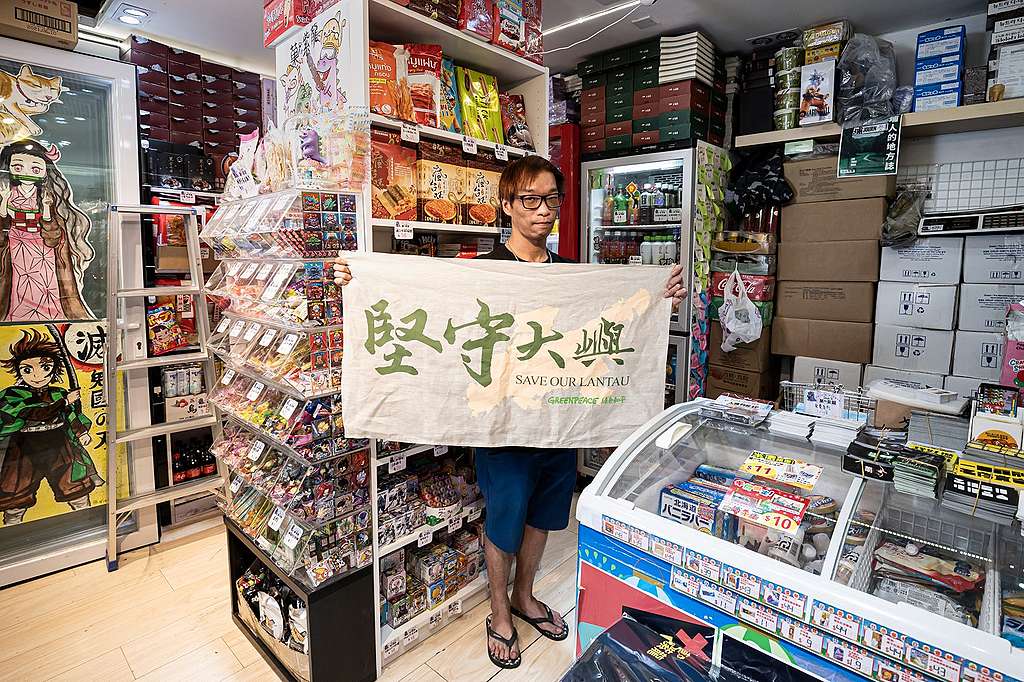
With staggering environmental impact, KK, an urban designer, questions the project’s impact assessment’s credibility. He runs a House of Salvage, a thrift shop he calls an “orphanage of second-hand items” and promotes reusing and recycling. The avid environmentalist criticised the project as it would cause severe environmental damage, “The Netherlands is doing everything to relief floods, and we’re spending a fortune building an island that might sink, have we ever considered its feasibility? Can our ecology cope, or do they think we’re stupid?”

A flattened landscape and altered community
When oceans become land, or when natural countryside becomes urban, the change can be irreversible. Max, a multi-generation Lantau native and runs the Lantaublue workshop, believes Lantau Tomorrow Vision is “Lantau, tomorrow visionless” and nothing more than a repackaged property development project. “Every step the government takes in destroying Lantau, this place is closer to losing its soul. Being idyllic and relaxed are Lantau’s core. It’s for holidays, not construction”.
Max comes from the 400-year-old Tai Long Wan village. He witnesses a schism happening in Lantau – between those who support the project and those who oppose. Newcomers are now also facing relocation. “The project might force out the artisans who moved to the countryside for low rent or those who love nature and value their living standard. They’ve already moved from the city to the northwestern outskirts, then to the islands. Where can they go next?”
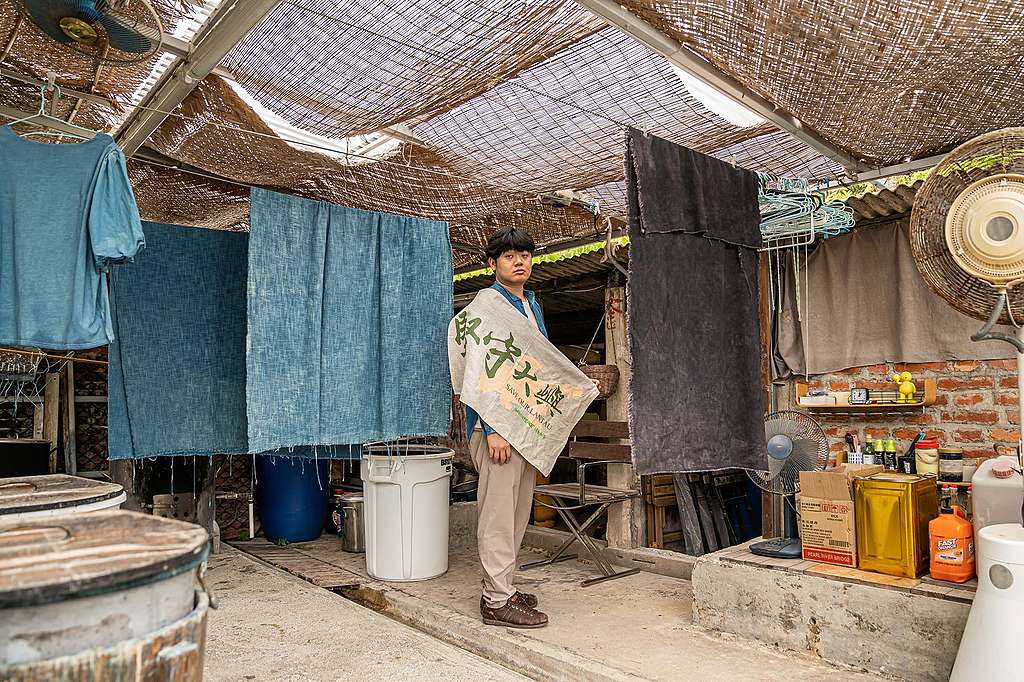
Besides the massive land reclamation, Lantau Tomorrow Vision also includes a cross-harbour bridge between Lantau and Sai Wan, bundling the Central and Western District into its blueprint. Mandy and her mother opened their dessert stall called ‘Sweet Home’ in Sai Ying Pun a year ago. They fear the project will bring an influx of people from other suburbs. These people may very likely find jobs in or travel through the district, which the community may not cope with. “If there are projects along with the coastal areas, I’m sceptical on how the government would handle it. The last thing we want is to lose our iconic places like ‘Instagram Pier’ and become just another bland community”, Mandy said.
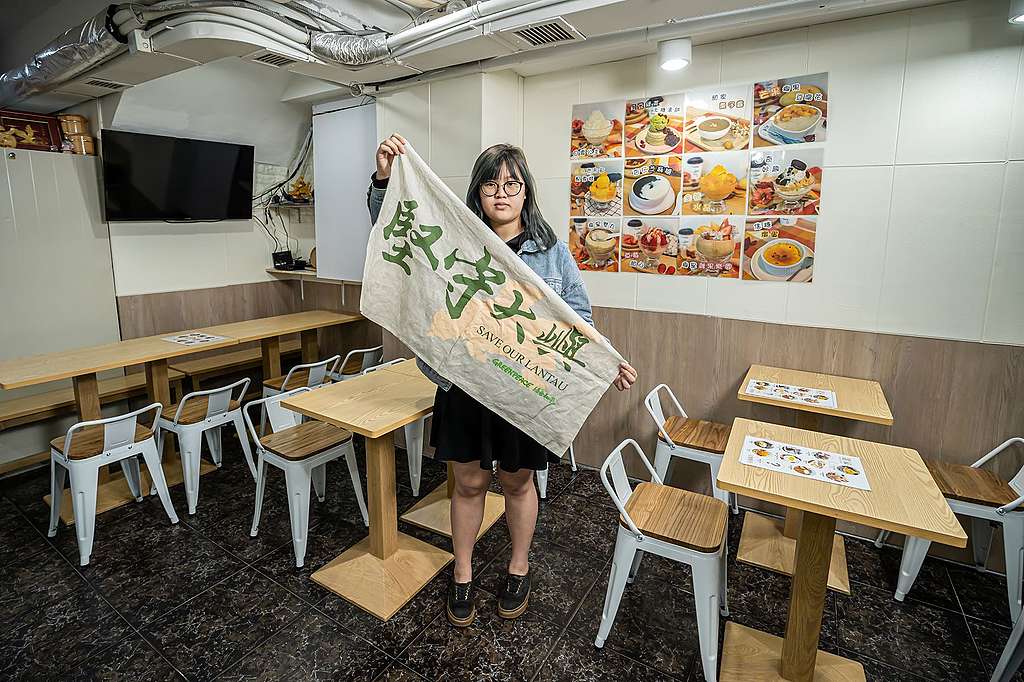
Who’s taking the burden?
Lantau Tomorrow Vision is projected to cost at least HKD624 billion, not including the very likely overbudgets. This project can empty Hong Kong’s fiscal reserves, but it will be the everyday Hongkongers who will pay the price. Maggie, who owns a soup kitchen called Soupland, blasted the project as “dumping money into the sea” and “absurd” as she was shocked by the astronomical figures. She believes there are other ways in solving Hong Kong’s land problems, but not being dead-set on a hugely expensive reclamation project, “brownfield lands is already an option”.
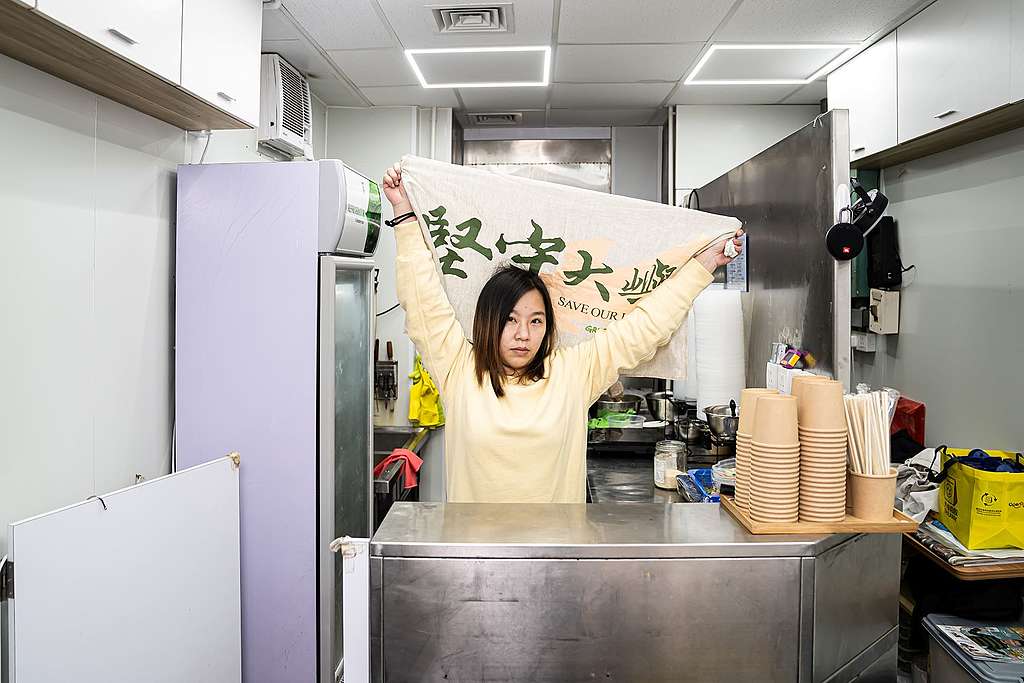
The huge price means property prices in Sai Ying Pun will most likely surge. Maggie, born in the 90s and owns the ‘I Am Here Cafe’, does not see the project as a viable way to solve Hong Kong’s housing problem. “I think reclaiming land is not only expensive, but the properties are bound to be expensive too for their views. Public housing from the project is also minimal and far away, so it won’t be suitable for youngsters like me”.
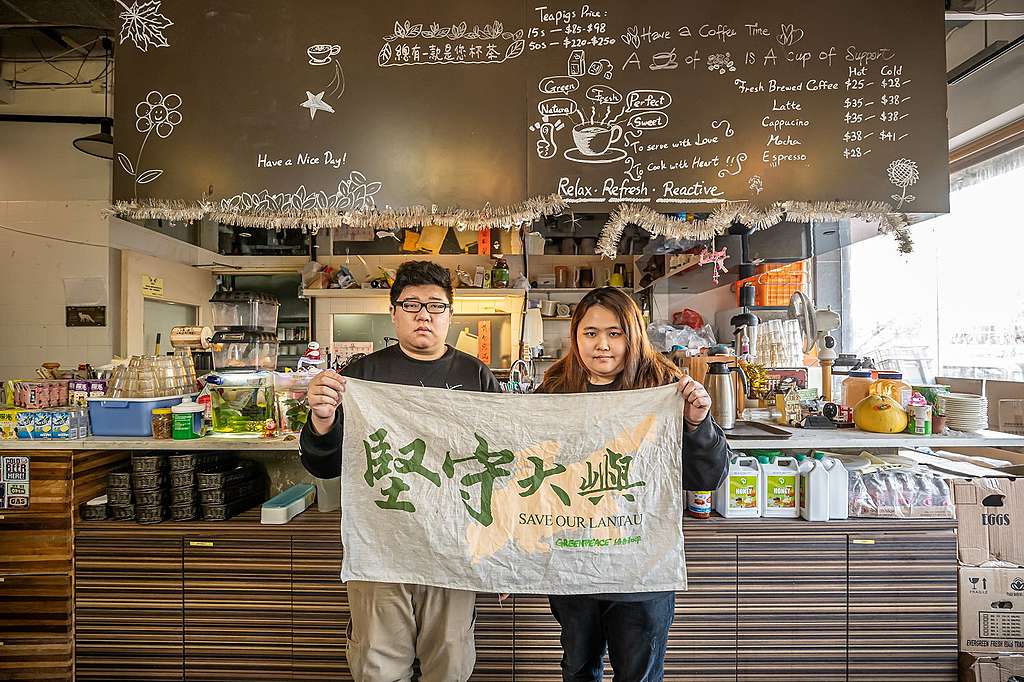
Keeping up and not giving in
With the advance funding passed, the project seems imminent. But these ten small business owners remain unfazed with their “Save our Lantau” flag. To them, losing isn’t the worst, giving in is. That’s why they’re doing what they can and keep fighting the development tide for the sake of our ocean.
Mrs Chi and a few stall owners are organising a trail running race around Lantau – the HK UTML – and opened her stall as a checkpoint. On the other hand, KK from House of Salvage hopes to raise awareness in the community and bring the message across with other organisations. “We might have no say, but we gotta keep trying”. Over at Sai King Pun, Mandy and Lung see a lack of awareness of the dire ecological and public financial consequences the project might bring. They plan to print pamphlets out of their own pockets to solve this problem. After all, it’s about giving all they can until the end.
We want more people to be aware, so the government can hear us and give a vision back to our Lantau island.



